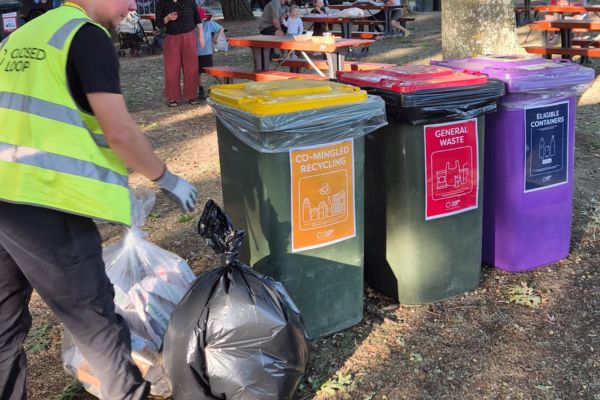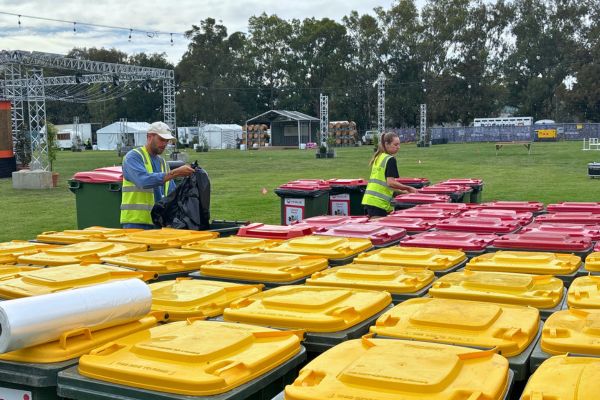Why is food waste bad?
Australia produces enough food to feed 75 million people (in a country with a population of 25 million), yet each year we waste around 7.6 million tonnes of food. That’s enough to fill the Melbourne Cricket Ground nearly nine times!
Food waste is hugely problematic. It also financially impacts food services businesses such as restaurants, cafes, universities, venues, wineries and other catering businesses as they have associated costs with food waste. If you are a food service business, this blog will explain the impacts of food waste and how you can minimise food waste in your business.
What is food waste?
Food waste can be food that never leaves the farm, gets lost in transit, is not used in the kitchen or is left over from patrons. Food waste refers to any edible goods that is not consumed and may end up rotting in landfill, producing methane gases and contributing to climate change.
As an example, the bread and bakery industry waste 319,400 tonnes of good quality food due to grain and material wastage, unsold products in retail or uneaten goods.

Why is food waste bad?
Food waste is hugely problematic for many reasons such as the negative impacts on climate change, utilising precious resources and financial impacts.
How does food waste impact climate change?
When food waste is disposed of in general waste it breaks down and creates large amounts of greenhouse gases. One of these greenhouse gases is methane. Methane traps heat in the atmosphere and is 28x more potent than carbon.
Studies have shown that methane is responsible for 25% of global warming. Reducing the amount of methane in our atmosphere will slow down climate change.

How does food waste impact our land and resources?
When we waste food, we also waste the resources used to grow it (water, soil and energy), as well as the energy used to grow, process, package and transport this food.
Australia uses around 2600 gigalitres of water to grow food that is ultimately wasted. The amount of land used to grow this wasted food is more than 25 million hectares.
How does food waste impact your business financially?
Food waste costs the economy approximately $36.6 billion each year. Businesses have food waste associated costs that include:
- Additional general waste costs
- Additional transport, storage and other purchasing costs of food produce
- Additional labour costs in food production / food management that goes to waste
- Additional service costs associated with food waste blocking drains, repelling insects and rodents and other complications

How to reduce food waste at your business
If you are a business that provides a food service, there are many food waste solutions you can employ at your workplace to minimise food waste and the impacts it has on landfill, but most importantly it can be financially rewarding for your business.
1. Better controls on food stock and used-by-dates
Understanding and having accurate systems for adequate food stock management helps reduce food waste by using produce available on hand and allowing for systemised procedures on ordering stock.

2. Planning for PAX, capacity and meal portions
Adequate planning can help your business reduce the amount of food waste from leftovers and post-production.
3. Auditing current meal portions and wastage for recommendations on adequate portions
Reviewing your current meal portions and percentages of wastage for common meals may help indicate meals which the most of food waste.
4. Composting food waste on site
One effective way to reduce your business’ food waste costs is to manage your food waste in-house through a commercial composter. Commercial composters can have a payback of 3-5 years.

5. Sustainable food production and practices
Using as much of the produce as possible, reusing by-products, incorporating seasonal menus that use various parts of produce – just to name a few!
6. Educating your customers
Getting your customers to understand your position on food waste helps them understand why your restaurant takes certain food waste actions.
Benefits of composting food waste
One of the most common solutions to reducing your food waste is composting through a commercial composter. This can be through a service, or an on-site commercial composter.
Composting food waste reduces methane emission production, but also provides your business which high-quality compost to be sold or reused. Many businesses that have their own produce reuse their high-quality compost to feed their crop. This saves money on other composts and fertilisers.
An on-site commercial composter can be an investment with most businesses saving costs over 3-5 years.
Overall, we hope this has given your business an idea as to why food waste is bad for the environment and how you can reduce food waste without it breaking the bank, but in-fact saving your business money!

Resources:
UNEP: https://www.unep.org/news-and-stories/story/methane-emissions-are-driving-climate-change-heres-how-reduce-them
OzHarvest: https://www.ozharvest.org/food-waste-facts/
Stop Food Waste: https://www.stopfoodwaste.com.au/
DCCEEW: https://www.dcceew.gov.au/environment/protection/waste/food-waste








